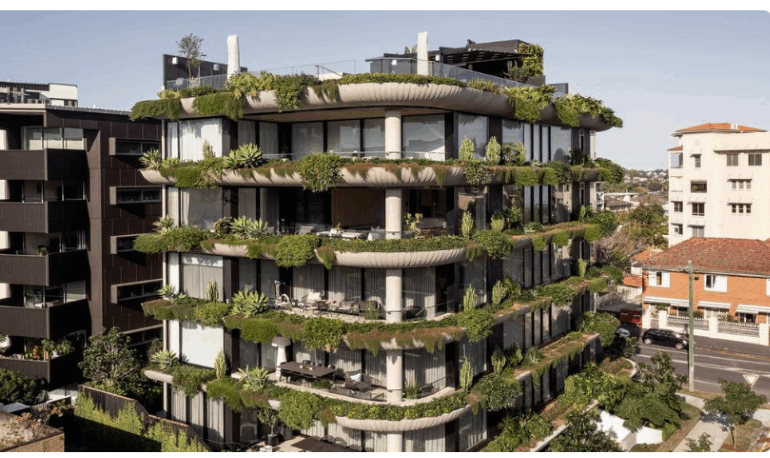The Supreme Court won’t hear the City of Ottawa’s appeal in a long-running case over a proposed housing development on the Kanata Golf and Country Club.
The decision will allow property owner ClubLink to proceed with a plan to build 1,480 housing units on the site, despite a 1981 legal agreement requiring the property owner to protect open space.
A lower court declared key provisions of the agreement void and unenforceable.
The case has been winding its way through the courts for years. The city sought to block the development and won a court challenge in 2021, only to see the Ontario Superior Court reverse that decision in favour of ClubLink.
It said ClubLink shouldn’t be “saddled with a perpetual obligation to run a golf course.” Ontario’s highest court dismissed the city’s appeal this January.
On Thursday, the Supreme Court of Canada dismissed the city’s leave to appeal that decision without explanation. The city’s top lawyer, Stuart Huxley, said in a memo to councillors that the Supreme Court’s decision means litigation is now at an end.
‘Deeply disappointed’
Mayor Mark Sutcliffe lamented the news on Thursday but said the city still has options at its disposal. He said it will not grant any of the easements — essentially, a legal right that lets one party use another’s land for a particular purpose — that the housing development might need.
We want to assure residents that we will continue to use all the tools at the City’s disposal to ensure the commitment made to the community in 1981 is upheld,” Sutcliffe said in a social media post.
“We are committed to saying yes to responsible development throughout Ottawa, but for many reasons this project does not meet that standard.”
The prospect of the golf course being replaced by a massive housing development met with community opposition in the Kanata Lakes and Beaverbrook neighbourhoods, amid fears that the development’s impact on stormwater management could cause flooding.
The Kanata Greenspace Protection Coalition, an intervenor in the case, said in a press release Thursday that it was “deeply disappointed” that the Supreme Court is declining to hear the case.
“How can a municipality enter into a contract with any party to build, manage, or secure long-term assets or property if it can be violated at any time? The Supreme Court is the place to settle confusing legal decisions,” said the coalition’s chair, Barbara Ramsay.
“It’s truly mind-boggling that the court won’t hear this case.”
Ramsay later told CBC that residents also had the right to use the space in the off-season, when the golf course wasn’t in operation, and enjoyed walking, skiing and pond hockey there.
 The Supreme Court’s decision casts doubt on what the words ‘in perpetuity’ truly mean, said Kanata North Coun. Cathy Curry. (Stu Mills/CBC)Councillor worried about precedent
The Supreme Court’s decision casts doubt on what the words ‘in perpetuity’ truly mean, said Kanata North Coun. Cathy Curry. (Stu Mills/CBC)Councillor worried about precedent
Kanata North Coun. Cathy Curry said she too was disappointed by the decision. She said the stormwater concerns are real, and expressed alarm about what the case could mean for contract law that cities rely on.
“I think we all felt that there was a really strong case this time, to make sure that the Supreme Court recognized that this issue was of public significance,” she said in an interview.
“What do the words ‘in perpetuity’ actually mean? We all thought they meant forever. Clearly they don’t.”
In 1981, the pre-amalgamation City of Kanata made an agreement with the land owner at the time, Campeau Corporation, which wanted to develop a large expanse of farmland.
The city has the final say in terms of what it will allow. An easement is a critical piece of approval for any developer.- Cathy Curry
The two parties contracted to leave 40 per cent of the area as open space for recreational and environmental purposes, in exchange for the planning approvals Campeau needed. The idea of a golf course was included at the company’s request.
Campeau could continue to own the open space, so long as it operated the course “in perpetuity.” Otherwise, the city could step in and take over the land.
ClubLink bought the golf course for $2.8 million in 1997. It announced the development project in 2018.
The city objected, saying that violated the contract. But ClubLink argued that key sections of the agreement ran afoul of a rule against perpetuities.
After years of legal wrangling, the Ontario Court of Appeal agreed with ClubLink.
Further legal decisions declared still other sections of the contract invalid, including requirements to operate the golf course and to retain it as open space. The Court of Appeal reaffirmed those on appeal, allowing ClubLink to pursue the redevelopment.
In its ruling, the Supreme Court said ClubLink shouldn’t be ‘saddled with a perpetual obligation to run a golf course.’ (Sannah Choi/CBC)Still hope of continuing fight outside courts
Like Sutcliffe, Curry said there might still be ways to continue the fight against the course, even though legal remedies are at an end.
“I in fact think there’s quite a lot of hope,” she said. “I think that people need to understand what the city’s powers are here and what are some possible next steps.”
She noted that the National Capital Commission will still have to approve a stormwater outlet for the project. She also agreed with Sutcliffe on the possibility of withholding easements the developer would need to tear up city pipes, sewers and roads during construction.
“The city doesn’t actually have to do any of that,” she said. “So the city has the final say in terms of what it will allow. An easement is a critical piece of approval for any developer.”
On zoning, the Ontario Land Tribunal has ruled in favour of ClubLink before, finding that its development plans accord with the city’s Official Plan and the public interest.
Yet Curry noted that the ruling came with conditions that could get in ClubLink’s way.







